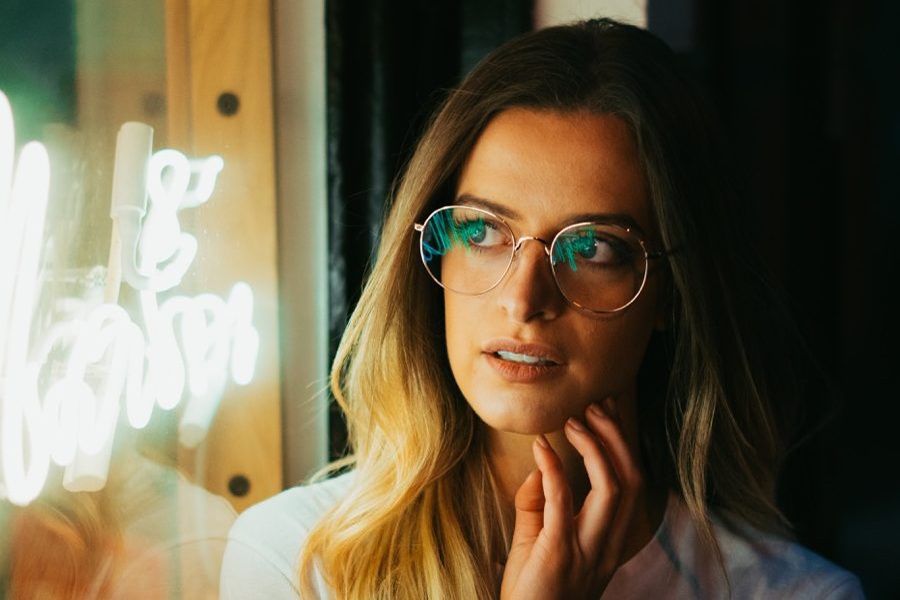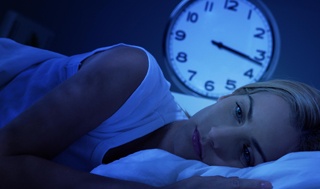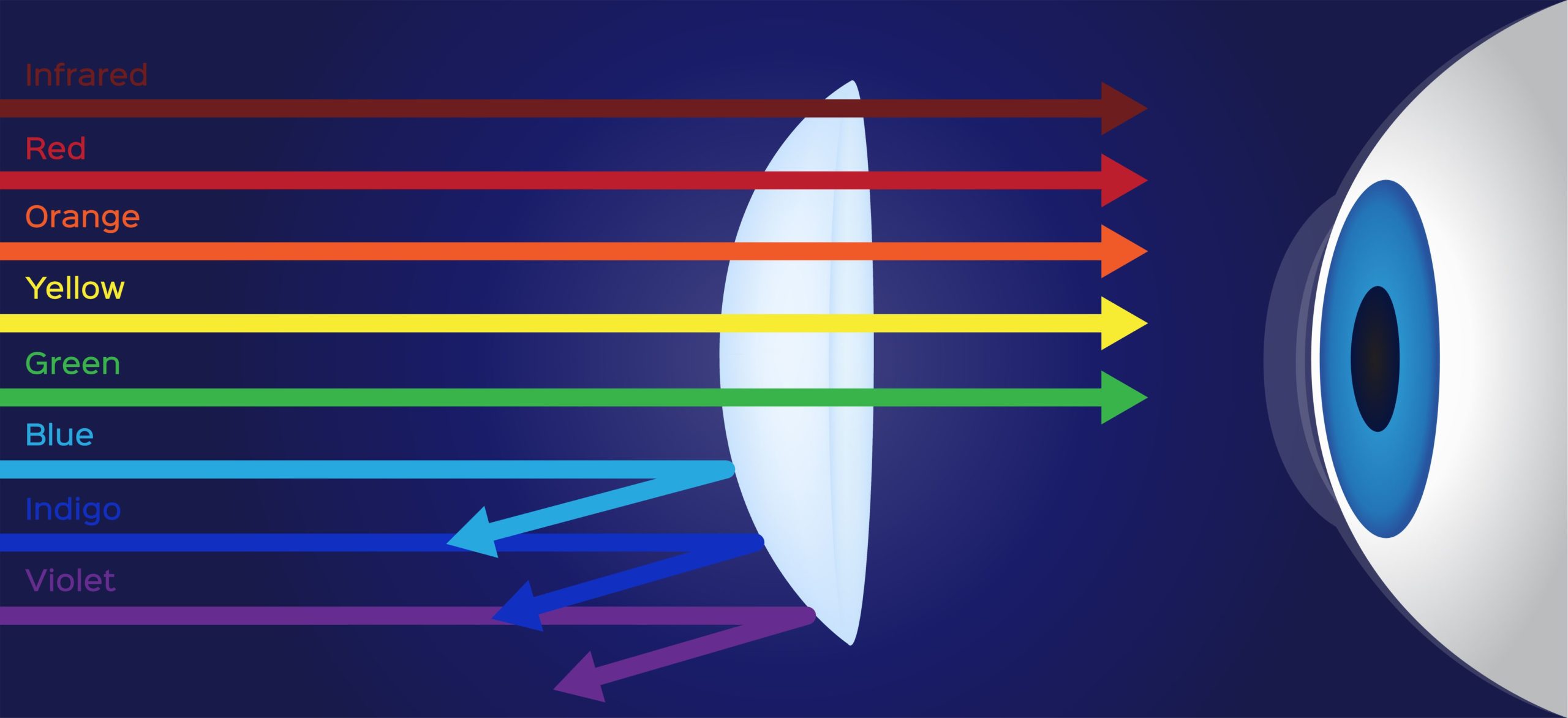Do blue light glasses really work?
What Is Blue Light, and Why Does It Matter?

As a quick review, our eyes take in daily light from many sources. Natural outdoor light, indoor lighting, computers and other screens.. For each light source, there is a vast spectrum of light rays with varying amounts of intensity, or wavelengths.
If you were to illustrate the light spectrum in terms of the rainbow's colors, imagine red being at one end of the spectrum. As you view through the remaining colors, orange, yellow, and green you get to the blue portion of the spectrum. Inside the blue portion, there’s invisible ultraviolet light, which is what we know causes snow blindness and sunburns.
This spectrum of light includes harsh rays that have high electromagnetic radiation because of their short wavelength. The other end of the spectrum consists of longer wavelengths containing less energy that do less harm to our bodies. The rays on the harsh end of the spectrum with shorter wavelengths include blue light rays (400-470nm).
Some scientists say that even though this blue light spectrum has shorter wavelengths, they aren’t harmful enough to cause substantial damages. They warn that it’s the ultraviolet radiation, part of the invisible spectrum of light, that we need to be diligent about blocking. Many people already do this with sunscreen and polarized sunglasses.
Other scientists point out that even though blue light isn’t harmful in moderation, we are now over exposed because we spend an abnormal amount of time exposed to screens and LED lights. These are the scientists who recommend blue light blocking glasses to help curb exposure during those long hours in the light, whether it’s outside, inside, or on our screens.
Blue light blocking glasses are designed to filter out harmful blue light emitted by screens.
Now let’s take a more in-depth look at blue light and where the argument lands when it comes to blue light glasses.
Is Blue Light Harmful to Your Eyes?
As mentioned, there are two sides to every coin, and the discussion on blue light has compelling perspectives on both sides, making the utility of blue light blocking glasses a confusing matter.
Two things scientists all agree on:
- Blue light is harmful, and overexposure can increase the risk of eye disease.
- Time spent on digital devices does cause eye strain, affecting upwards of 59% of Americans. Symptoms include dry eyes, blurred vision, teary or watery eyes, disrupted sleep patterns, and headaches.
The scientific disagreement lies in whether the blue light rays emitted from digital devices cause these symptoms and are harmful enough to warrant blue light blocking glasses.

They nay-sayers
On the one side, the scientists who don’t support blue light blocking glasses say the symptoms people are experiencing are simply a result of the overuse of digital devices.
In an interview with ScienceBlog in January 2020, Amir Mohsenin, M.D., Ph.D., assistant professor in the Ruiz Department of Ophthalmology & Visual Science at UTHealth‘s McGovern Medical School pointed out, “We don’t really have any data that supports blue-blocking glasses as being better for your eyes when you’re using a computer. It’s hard to recommend something without knowing more details about it.”
He went on to say, “The reality is that most of the problems we’re having with computers and eyestrain aren’t from blue light; it’s from how we use the computers, We’re spending more and more time in front of the computer screens. There are things you can do to minimize eyestrain, but as ophthalmologists, we’re not recommending blue-blocking glasses.”
When questioned about the source of eye strain when using digital devices, if not the result of blue light, some optometrists call out blinking as the real problem. Humans blink around 15 times per minute, which can be cut in half when staring at screens. Not blinking can understandably contribute to several common forms of eye strain, such as dry or watery eyes.
Those in favor
On the other side, some scientists and optometrists say the science is already available, even if the data specifically addressing blue light and screens hasn’t yet been collected and analyzed.
Natural blue light in the proper amounts isn’t dangerous. Blue light wavelengths are what makes the sky blue. They help regulate our natural circadian rhythms, our natural wake, and sleep cycles. Blue light can also boost alertness, elevate moods, and wards off depression. Too much natural blue light can be extremely harmful, leading to eye strain, macular degeneration, retina damage or blindness, and disrupted sleep patterns.
Artificial blue light, including electronic devices (i.e., computer screens, cell phones, tablets), some televisions, fluorescent bulbs, and LED lights, have a well-documented history of causing eye strain and sleep cycle disturbances.
It is believed that while blinking less is problematic and contributes to eye strain, the evidence does point to blue light as a contributing factor. There may not be long-term studies revealing its contribution to eye disease, but there’s plenty of current data pointing to blue light exposure as a problem.
In particular, even if the blue light emitted from screens and light bulbs is minimal, it makes sense that spending a growing percentage of our days staring at screens will lead to more exposure to blue light and a higher risk of damage.
“Blue light glasses will not help you with eye strain, says Relief Jones, III, MD, a board-certified ophthalmologist and medical director at the San Antonio Eye & Face Institute. That's because "the symptoms of 'eyestrain' that is experienced by individuals using electronics for an excessive amount of time are due to dry eyes syndrome." "Blue light from electronics trick the brain into thinking that it's still daytime, so melatonin production is inhibited. This can lead to difficulty falling asleep and staying asleep," Jones says.
Eye Relief Without Special Eyewear
Whether or not blue light is a contributing factor, it’s well established that screen time leads to eye strain and disrupted sleep patterns because of the tendency to blink 50% less while staring at screens. Luckily, because computer vision syndrome (CVS) is well-researched, we do know there are several things you can do to help reduce symptoms and long-term damage.
- Obey the 20-20-20 rule. Ophthalmologists have been recommending this for decades. Take a 20-second break every 20-minutes to look at something 20 feet away. This short break can offer a break to overstrained eyes.
- Use artificial tears. You can shut your eyes for short periods to allow moisture to build up briefly and to give your eyes a break. For chronic dryness, using teardrops can lubricate eyes for some individuals.
- Keep screens at a distance. Your phone and computer screen should be kept at about 20 inches away, or the approximate length of your arms.
- Keep glare to a minimum. You can adjust the brightness on your screen, control the contrast, consider a matte screen filter, and sit in a location where lighting is sufficient, but also minimizes glare.
Proven Benefits of Blue Light Glasses
Of all the benefits touted by eyeglass companies and lens manufacturers, what are the real, science-backed and anecdotal benefits of blue light glasses? And are blue light glasses worth it?

We’ve covered a great deal, so here is a summary of the benefits:
- There are an increasing number of studies being done to show that blue-light blocking glasses help with age-related and genetic deterioration, such as age-related macular degeneration (AMD).
- Blue light interferes with our natural sleep cycles - our circadian rhythm. Blue light blocking glasses can help get our cycle back to normal when worn regularly. This is not only helpful for people who spend a great deal of time in front of screens, but those who regularly work night shifts.
- There is plenty of evidence, particularly anecdotal for now, with increasing scientific studies, that show blue light blocking lenses can help alleviate eye strain and irritation. That includes blurred vision, headaches, tired eyes, watery eyes, and dry eyes.
Blue light glasses benefits are varied and still debated by opthamologists, but there is evidence, both scientific and anecdotal that make a compelling argument for the use of blue light lenses.
So, Do Blue Light Glasses Work?
To summarize, while long-term studies are still missing from the body of research, we do know that staring at screens for long periods can cause computer vision syndrome (CVS). This condition leads to many uncomfortable symptoms, including dryness, watery eyes, blurred vision, headaches, and sleep cycle problems.
We also know that blue light is a short form of light radiation that can be beneficial in everyday life but can lead to significant eye damage when overexposure occurs.
Some scientists point out that there isn’t data about the blue light emitted from artificial light sources to know whether they are causing real damage. Other doctors and scientists point out that since we know blue light is damaging and we know that people are spending an increasing amount of time on blue light-emitting devices, using blue light blocking glasses is a useful way to avoid the likely overexposure.
If you find yourself taking the side of the professionals who follow the logic that blue light blocking lenses can be very useful, you’re in the right place. At Overnight Glasses, we understand that protecting yourself doesn’t need the validation of data when the logic stands for itself.
Overnight Glasses offers high-quality, trusted brand name frames at low prices with fast delivery. Order your blue light blocking lenses today, and you can have them in-hand with guaranteed overnight delivery.
